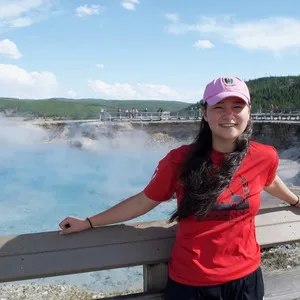While I truly enjoyed my time in London with Dickens’ Pip, the chance to take a food writing class (officially titled Smorgasbord)–an unconventional English elective– was too good to pass up.

The food writing class was broken down into taste analysis, personal essays/food memoirs, political food pieces (i.e. ethical eating), classical food literature (Babette’s Feast), and the grand finale. The latter was a pot-luck banquet complete with appetizers, entrees, desserts, drinks, and a final verbal presentation of one of our works from the quarter. Below is a list of the four best things I learned from my experience.
1. Everyone Has a Story to Write
Memoirs in a food writing class are obviously going to be about food. However, the memoir is not just about the food itself; it’s more about the memory connected to the meal. Relationships, heartbreak, and adventure are just a few notable associations with eating that make food stories powerful. The best part is that everyone walks in with a story, because food is in everyone’s life.
The above photo is from a trip to visit family in France. It was the concluding meal to a trip that signified culture, independence, and family. And, it was freaking delicious.
2. Ethical Dilemma
Ethical eating goes beyond the bickering between carnivores and vegans, and even beyond the raising of foods. A dilemma that might not come to the mind is food fads. Often blown up via eccentric social media feeds, dishes with important ethnic roots can be butchered by an obsession with trends.
By no means should anyone be prohibited from enjoying the pleasures of global foods, but ignorance and tradition should nonetheless be respected. Food has meaning, and sadly, fads often fake or over-simplify that meaning.
3. My Romantic Dinner for One
The essence of this food writing class was how each of us experiences food. For my final paper, one possible prompt was to experience and document dining alone.
Although other things of a similar nature might have bothered me, this concept wasn’t frightening. Determined to try something new, I came up with an idea that would be the highlight of the quarter: go on a romantic dinner date with myself.
The final essay was a comical take on the night’s duo-personality: the fancy and the frill-less. It was a night of orange juice in wine glasses, a home cooked meal remedied by ketchup, one real candle, another fake.
Sure, it was a little weird, but my intention was a success (and made my A-level paper unique). Eating alone allowed me to experience food in a completely new way.
4. Hit the Books & Pick Up Babette’s Feast
To get you started hit the library/bookstore with these names in mind…
Isak Dinesen (aka Karen Blixen) is the author of a classic food writing class reading: Babette’s Feast. While Babette’s Feast isn’t exactly a rollercoaster read (or watch), interesting themes like moderation vs. extravagance and different ways to experience food are explored.
Other Names to Know: MFK Fisher, Ruth Reichl (my favorite), David Foster Wallace, Julia Child (obligatory mention), and Anthony Bourdain (second obligatory mention).
Stories to Read: Consider the Lobster, Eating Words Food Anthology, Garlic and Sapphires, Joy Luck Club, Kitchen Confidential. Publications: Lucky Peach, Bon Appétit, The Art of Eating, and Spoon University.
Even if you don’t come across a food writing class during school, opportunities for food writing are available in many states and online courses. So, get out and try it!






